The shopping street urgently needs to be redesigned all over the world. Decades of mass consumption and cheap merchandise have had an adverse effect on our shopping areas, which are in turn becoming increasingly empty or being taken over by major brands. This has resulted in the aesthetic dominance of uniformity. We therefore need to come up with new systems that encourage slow, creative and customized consumption, new systems that respect craftsmanship and services, leading to a reduction in our C02 footprint.
What are those slow systems and how do they work? What does the ‘slow street’ of the future look like? How can we actively redesign our shopping street?
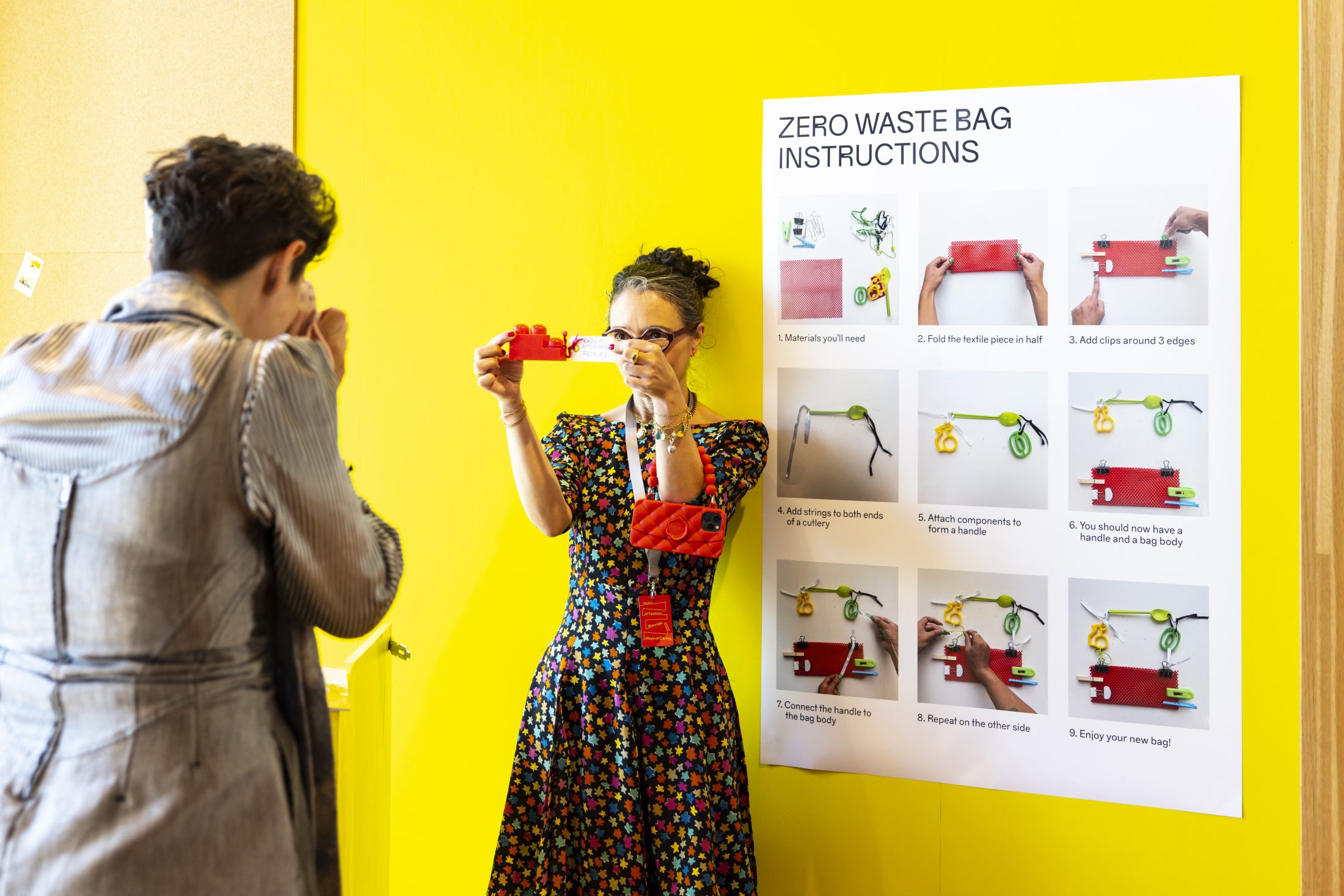
Specially for this intervention, the London-based multidisciplinary artist and designer Clara Chu, who graduated in 2019 from the Royal College of Art, created an installation in which to visualize our future shopping street. In her work she questions the focus on fast consumption goods and blurs the boundaries between ‘high’ and ‘low’ forms of culture by means of humorous transformations. She also mixes mass consumption with the hand-made. Her mobile installation documented and mapped various ‘slow street’ initiatives in Arnhem. The participating public got involved and left behind its ideas and inspiration concerning the way people want to deal with shopping streets and redesign shared spaces as a way of creating a more inclusive and regenerative fashion system.
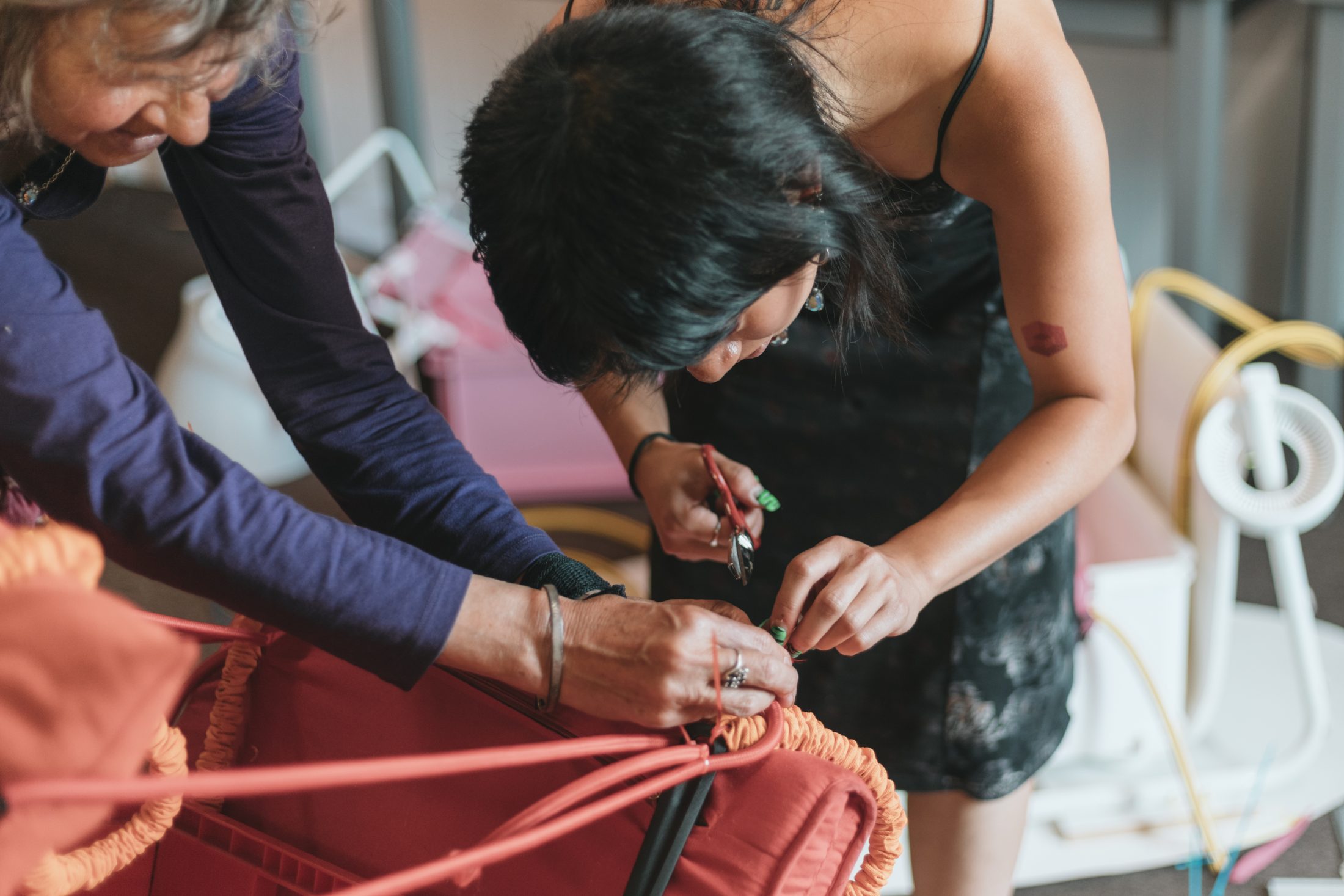
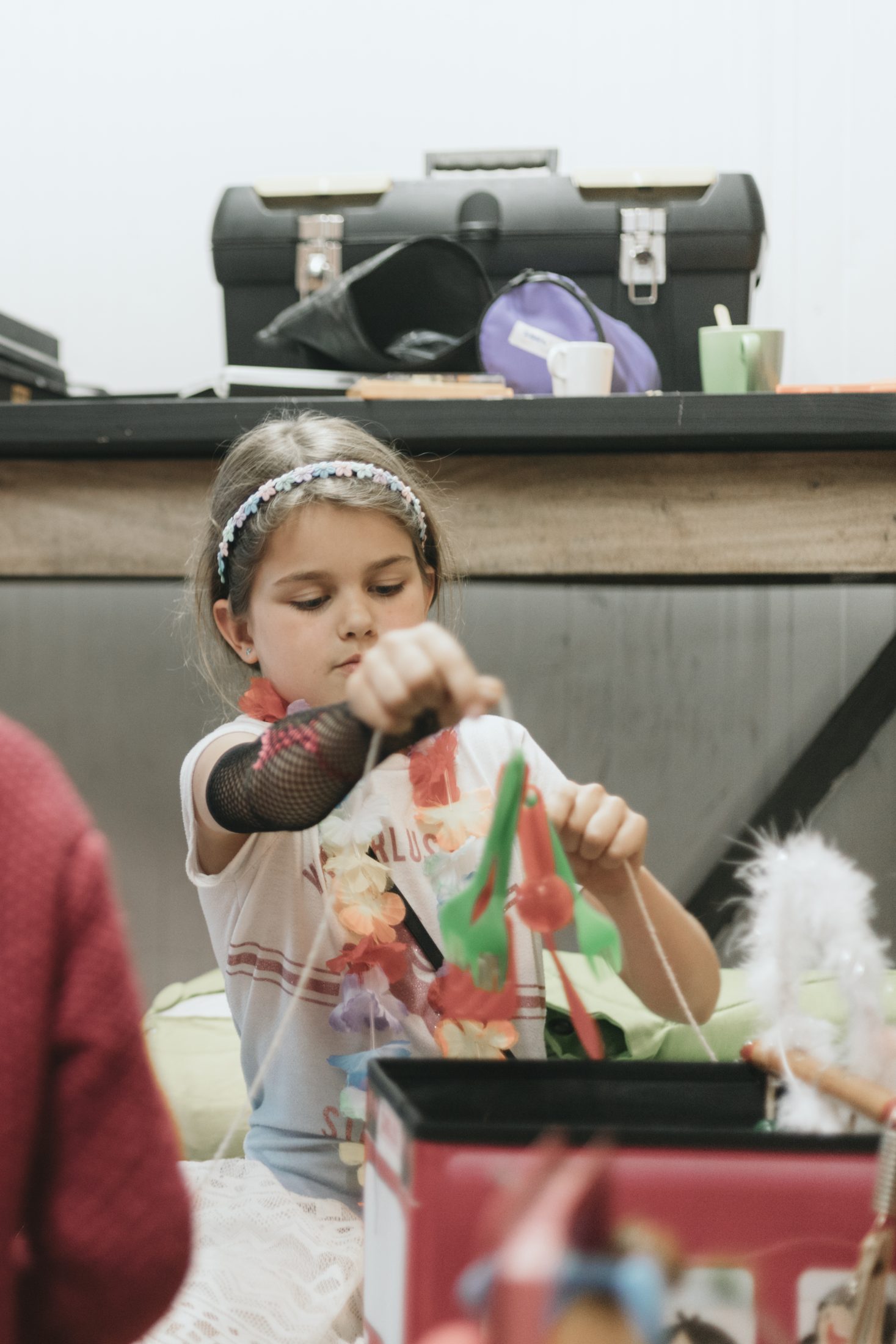
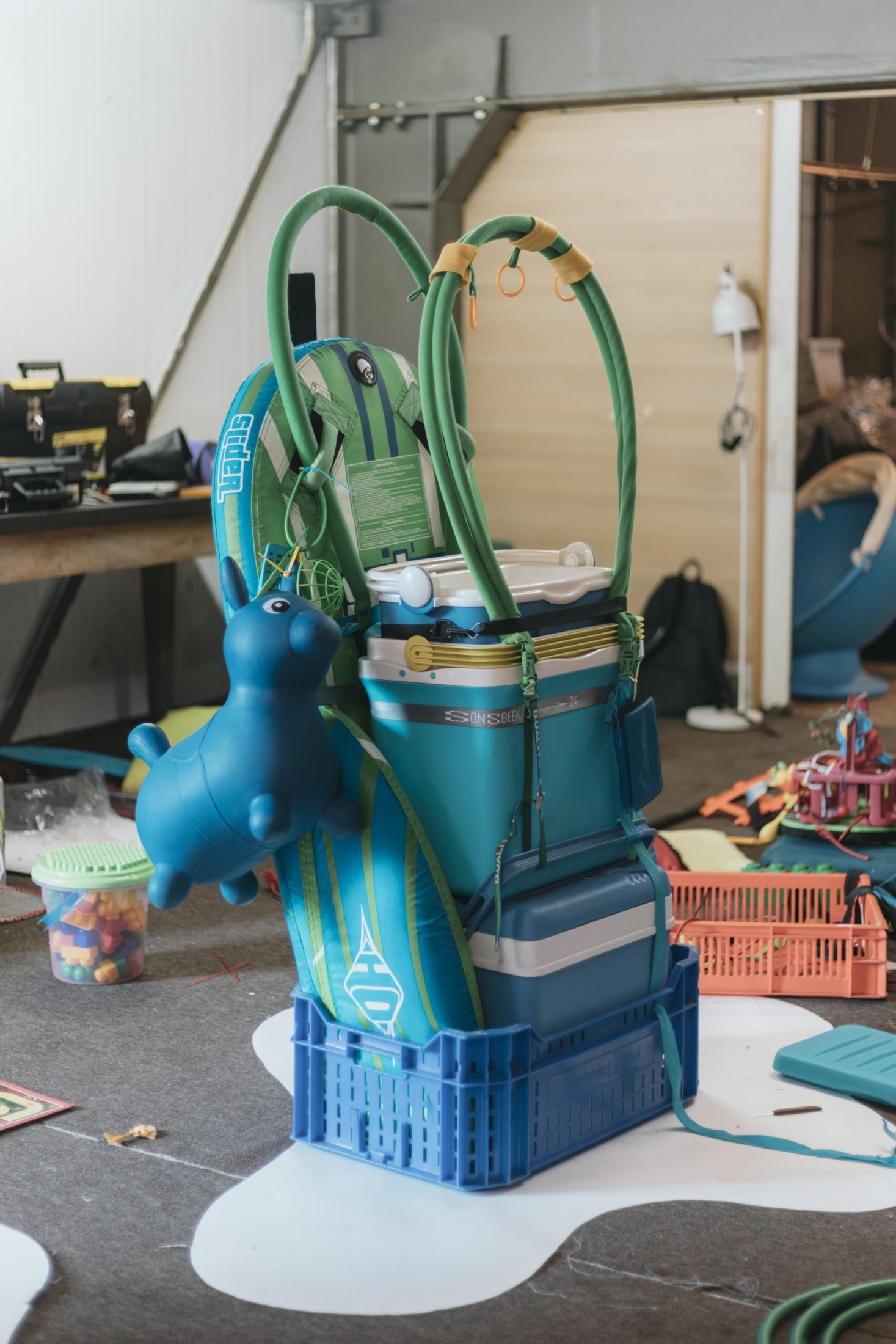
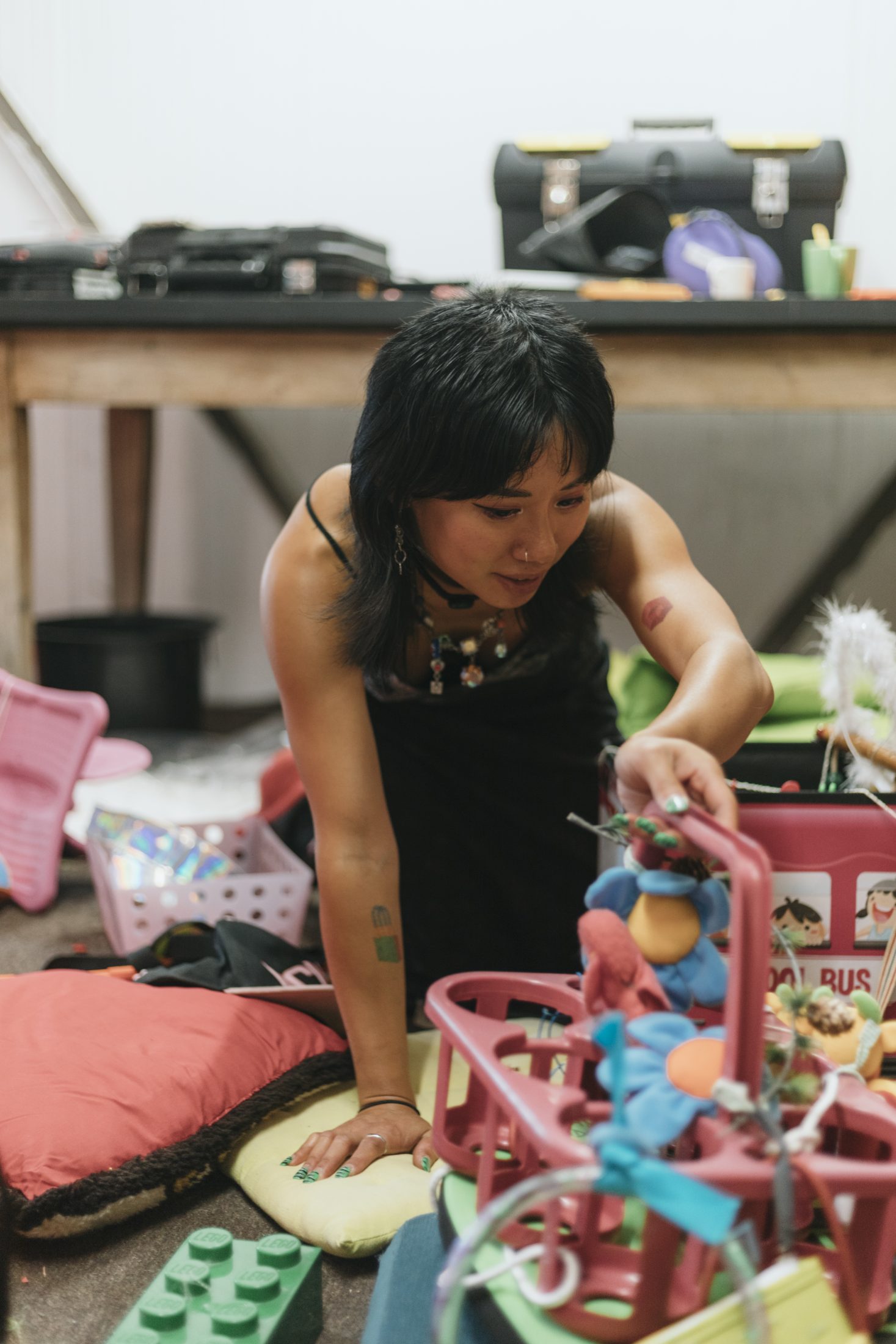
In connection with this intervention, three events, organized in collaboration with Rozet, focused on the shopping street. In three creative ‘pressure cookers’, participants came up with a prototype for the new shopping street and the city centre of the future. To this end, we teamed up with Bureau Ruimtekoers and sought collaboration with FDFA, Platform Binnenstad Arnhem and Citymarketing Arnhem. The findings of all sessions generated so much valuable information that we are currently processing it into a joint reference work, which we want to present to the city of Arnhem as a ‘One-Page Manifesto’. We view these results as a tentative ‘lobby’ for the near future.